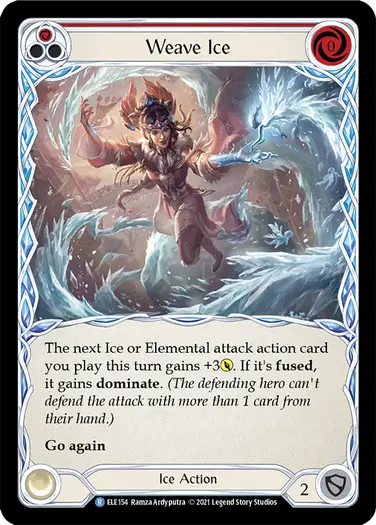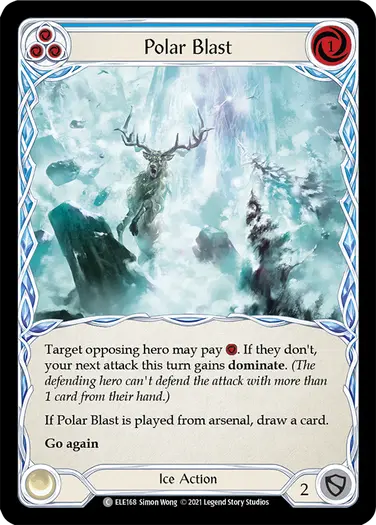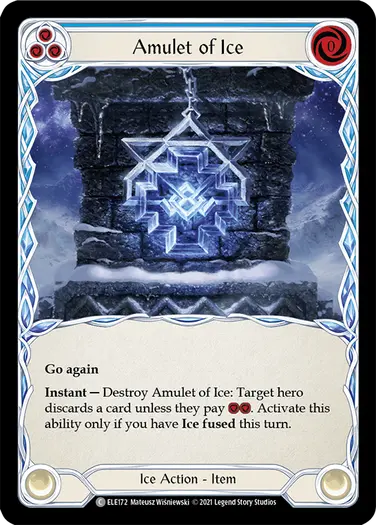Yuki Lee Bender most recently became Canada's first National Championship, freezing out the competition with her ice Lexi deck. While her first official event was a Monarch pre-release event in March, she's been playing Flesh and Blood since shortly before the release of Crucible of War.
'Yeah, I got into Flesh and Blood by watching YouTube videos actually. LSV from ChannelFireball had just started playing the game; he put out some gameplay videos, and I had heard of the game before but never really seen it, and when I was watching I thought “oh hey this looks really cool, I wanna play”. But of course it was in the middle of Covid and it was not easy to play, so I ended up getting a friend of mine to play it on Tabletop Simulator with me to try it out. I was hooked on it right away.
I remember going and buying cards and not really knowing what to do with those cards at that point; I didn’t really have anywhere to play, but I wanted to see what the product was like.
From there, I started playing a little bit in local events on webcam, and I never really looked back, it’s just been so much fun. The community is great, people are so friendly, I just really enjoyed playing.'
Yuki Lee has a long history in trading card games, having begun playing at a very young age. Her mother was the one to teach her how to play her first TCG, having read the rulebook so that they could play the game together.
'I played trading card games a lot growing up, but I never really played competitively. I didn’t know that the competitive circuit was a thing at that age, it was very much playing at school with friends, or playing with my family, actually. I remember I really wanted to learn the game when I was about four or five years old, and I had a rulebook but I had no idea how the cards worked, and my mom was amazing, she read through the rule book and taught me how to play, and so for a long time I was playing with my mom and my dad at home. That’s kind of how I got into card games, and I loved it. I would just look through the cards, and I would build decks, and I just absolutely loved it. I did know how the game worked, but I was very casual, and more from a ‘have fun’ perspective.
At some point, I started playing a TCG online; I hadn’t played a card game in a long time, and it seemed like a relatively cheap way to do it, so I tried that out, and then I realised that I really like drafting. I found out that the first TCG I’d played also had drafting, which is not something I knew about, and when I revisited it and played one of their draft events for the first time, I was hooked. At first, I didn’t start to get more competitive with it, I just wanted to win the weekly events, but then, you know. I started going to things more like the Callings, and I never did quite make it to the Pro Tour, but I did make it quite close to Top 8’ing some professional draft events.
Limited’s my main mode of play in other games, Flesh and Blood is sort of the first game that I’ve really taken to Constructed. I’d tried Constructed formats before, and I didn’t mind it, but I got frustrated with some of the games feeling like non-games. Flesh and Blood, even if they games aren’t close, at least you feel like you got to play, and that’s a big bonus ‘cause sometimes it’s really disappointing flying up somewhere and then you just- you know, there's nothing you could have done, it was totally out of your hands. That’s never a good feeling.'
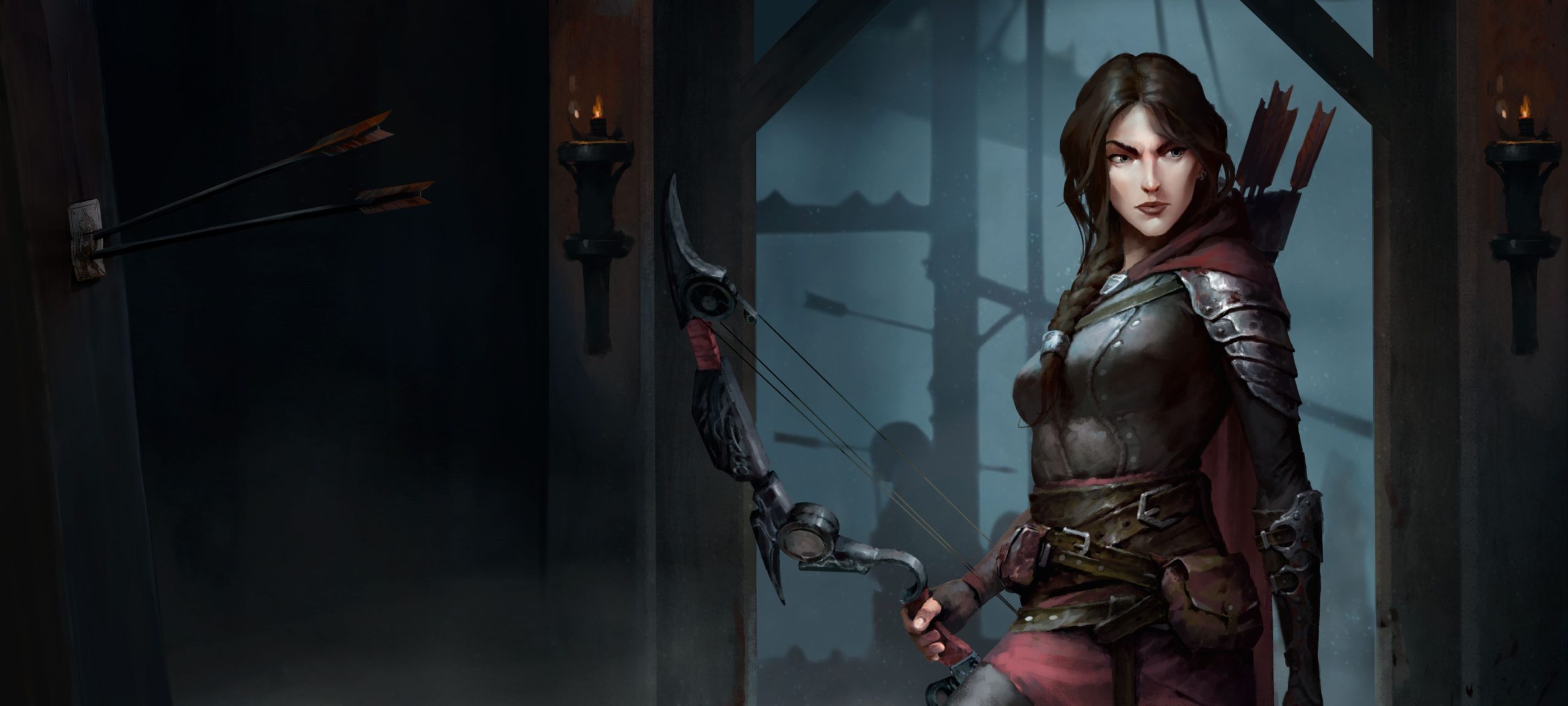
When the subject of her first hero came up, Yuki admitted to being a Ranger player from the beginning. When she first picked up Flesh and Blood, Crucible had only just released, and at the draft table, Arcane Rising was the set of the day. At the time, Azalea had a passionate fan following, despite the fact that many players didn't consider her a strong contender in the meta.
'It's sort of funny, when I first started playing I was a Ranger player, I was playing Azalea. I remember going to my armories and bringing Azalea – I knew that she wasn't considered great, but I just wanted to play her, and I remember like slowly doing better and better, and eventually coming in third at an Armory, which felt like a big deal at the time.
But eventually it was just too hard, and fairly competitive so I kind of moved away from Azalea, but it's still something I always enjoyed and I always wanted to find reasons to go back to Ranger. Then Tales [of Aria] came out. Lexi is very interesting, very powerful I think I actually originally did try lightning Lexi quite a bit in Constructed, but ultimately I felt like I couldn't get the deck to be as consistent as I wanted, and I was often stuck sort of just racing; kind of left to the mercy of like how well I draw versus how well my opponent draws, and I didn't really enjoy that. But I have been playing ice Lexi in Blitz because I thought it seemed like fun, and also thought that it might be well-positioned.
Just being able to tax some of the defense reactions from Ira, like Frost Lock seemed like a good card against Ira. It’s sort of funny because it wound up being the hardest match up deck in Blitz, but I have been tinkering with it and tweaked a lot of the ratios, figured out which cards I liked, and I definitely learned a lot about the play style and the deck construction from that.
So when UK Nationals came around, and suddenly lightning Briar was everywhere, I went ‘well I know exactly what deck is perfect to beat lightning Briar, because of a local player who loves Briar. It wasn't exactly the same list, but I was just- every time I faced this player, it was… you know, it was very favorable for me and the lightning Briars looked even more susceptible with all the redline attacks and all the zeros, it just seemed like such a natural counter.'
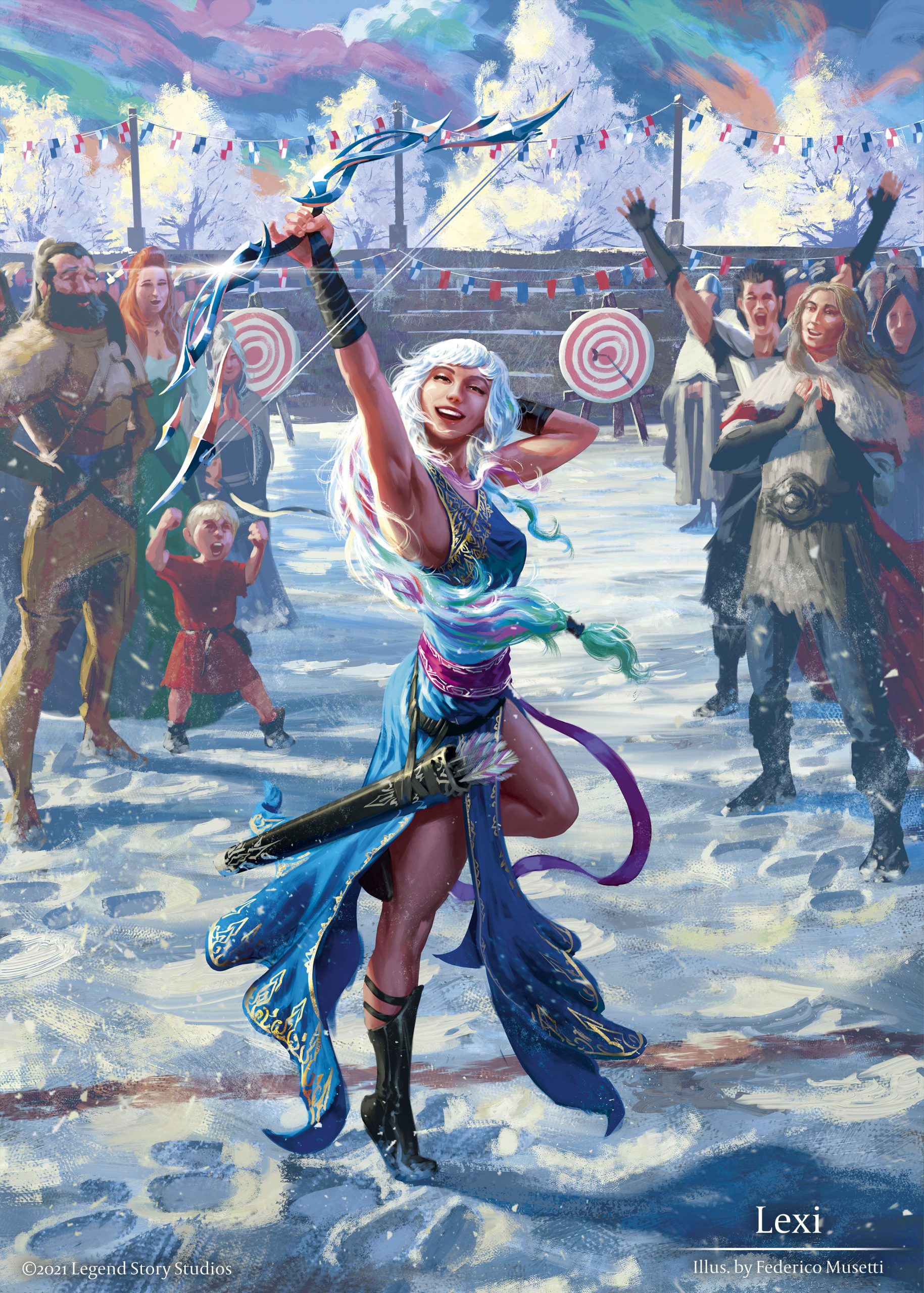
'I was really excited to be in this sort of unique position, where I had been working on this pet deck, but then it became also the good meta choice; everything kind of came together, and in a lot of ways, I was just very fortunate to have been to be on that deck for fun prior to the event. I was then able to adapt it to CC. Of course, it’s not the same thing, but I think figuring out the ratios and figuring out the play patterns is a really big part of Lexi – and maybe part of why up until now, she hadn't really been winning many events. I think there's a lot that goes into both playing her and building her, and it's hard to get the consistency up there.
I think a lot of people see the power, but then you can’t always do it game in game out and turn after turn, and getting up that balance is really tricky; it took a lot of tinkering and fine-tuning.'
That momentum carried Yuki into the Classic Constructed season, drawing on the experience of playing Lexi throughout both drafts and Blitz games. The sideboard in CC allowed her to add more targeted cards to plan for matchups against certain heroes, and while she admits to not having playtested as much as she would have liked, Yuki's theory was solid. Between her strong draft experience and her Lexi deck, she was well prepared for what the National Championship might bring.
'Leading up to the event, I actually thought I was going to play Prism, just because I had played Prism all through Road to Nationals, and it seemed like a good choice. But with lightning Briar, I really quickly realized that there is no way I could play Prism into that, and like I said, I knew the perfect counter. So I tried building the deck, adapting it to CC, making some changes, making some tweaks. You have a little bit more freedom in CC to bring on some kind of targeted cards, like Sleep Dart or like Blizzard, since you don't have to play them in every match up. I definitely put some time into building out that list, and I just played against a bunch of Briars, as much as I could, and I hardly lost a game. I didn't have as much time as I would have liked to test, I was quite busy – I'm a teacher and I was in the middle of report card season, so I was trying to test as much as I could with locals, and just anyone who would be up for games.
I think overall between Nationals and all the testing games I’d done- I think my record was something like 25-1 against Briar, I hardly dropped a game, so I felt very confident. I started testing against other matchups; the other one I really prepared for was Bravo, since I expected him to be quite popular. I did end up getting a sideboard plan for Bravo as well, but some of the other matchups were more theory-based, and I didn't have time to extensively test them. Based on my gameplay from Blitz, I sort of had some idea of how the matchup might go, but I didn't have the time to test as much as I would have liked in an ideal scenario.
I’ve been branching out and playing a lot with the local scene, but I have two friends, Jay and Mateo, that I actually got into the game and they started playing Flesh and Blood; they were actually at Nationals too. So they've been my primary playtest partners, and the people that I bounce ideas off of. But I'd say that the VC community’s fairly close-knit, and I think I got in practice games with almost everybody who went to Nationals. Not quite, but the majority of players who went to Nationals, I’d played a couple of games with.
Going into the event itself, I felt very confident, especially in the draft portion. I didn’t necessarily expect to win or anything -I was kind of shocked when I did – but I wanted to do my best, and I thought I did, I thought I had a shot at it. We had been sort of firing one to two drafts a week, some of them through local Armory events towards the end, and some of them just getting together with the friends I playtest with, and whoever else we could get locally to draft. We're all kind of big limited players so we're really keen on it, and we felt like a draft was probably one of the biggest places we could get an edge. Plus, I really liked [my] deck, I felt like it was well-positioned, I thought that a lot of people wouldn't be prepared for it, which I think played out in the rounds.
My plan going in was just to try and do well enough in Constructed, and with the draft portion, hopefully keep me at the upper end, and then I expected that if I could do that successfully, that I would hopefully play against mostly Briars and really take advantage of that matchup. And that's exactly what happened.
I expected to see a lot of Briar, I expected to see Bravo, maybe a little bit of Lexi; I thought I might run into Prism as well, just because she tends to be quite a popular deck, and I think a lot of people are comfortable with her. But as it turned out, I actually hardly saw any Prism at the event whatsoever. I did happen to bump into some Oldhims and some Kanos on the way, but in the top eight it was all Briar.'

'The biggest matchup that I was worried about was Oldhim, I had playtested only one match up of Oldhim, and it was really, really rough. Honestly I don't know if, given time, I could have developed a reasonable plan. It seemed very, very hard. A lot of the ice effects are just really strong against Lexi; Channel Lake Frigid is very powerful, Endless Winter is really powerful… there's a lot of problem cards and Oldhim can just fatigue you and run you out of cards.
Interestingly enough though, I was actually fairly confident against the rest of my matchups, even though some of them I hadn't had much direct experience with. I felt like I had a good theoretical match-up. A lot of the other control decks like Bravo and like Dash, I think a lot of people think ‘I can just sit there and fatigue Lexi’, but I think with the right sideboard and the right game plan, you can consistently set up six card hands and go wide against them, and ship them damage; or you can also go very very tall with dominate. And I was playing extra Weave Ices and Polar Blasts to do that, and you can set up Amulets of Ices- there's lots of ways to strip cards from hand, and then just set up big turns and consistently push damage.
'I felt it was actually pretty favored against a lot of the control decks, especially because a lot of them prioritize those 0 and 3 cost defence reactions, and if you give them a Frostbite, having to pitch a card makes it go from a very efficient block to a- actually very inefficient block. If you're paying two cards to block for 4, that's worse than just a regular 3 block in your deck. So I think that Lexi’s actually deceptively good into control. I think that she doesn’t even really need Heart of Ice into control, at least not the ice version, because the frostbites do such a good job at taxing the defence reactions.'
When Yuki Lee emerged into the Top 8 and saw a field of Briars, it was Oldhim that caught her attention. Of all the potential matchups, Oldhim wa the one she was arguably least prepared for, and she described watching the match between Dimos Kaloupis and Isaak Krut very closely.
'Yeah, going into the Top 8, I just wanted to play solid. I knew that there were some very good players in there – I played Dante in the quarterfinals, and I just wanted to make sure that I was intentional with everything that I did; that I wasn't missing triggers, that I sequenced everything correctly, and I felt like… so long as I played well, and I made good decisions, and I just tried to stick to what I did in testing, I thought I would probably do well.
I guess the other part of my strategy was just to pray that I didn't have to fight against Dimos on Oldhim, because I played him in Swiss, and it just- it wasn't even close to being close. So that was the other part of my strategy, and I was very lucky that he lost an extremely close game against a Briar, I was watching the end of it and it was a real nail-biter. They were both tired, I think, it was going on forever and they were both down to… I think they were both out of cards in deck… Actually I believe they were both at 1 [life]; it just- it couldn't have been closer.
So things kind of broke my way. I played only Briars in the Top 8, and I just tried to stick to what I know, play solid, and try to draw above average. I don't think that I need to get the best draws in order to beat Briar, it felt like I just kind of drew very consistently, drew into Three of a Kind hands a lot, and I also felt, like I said, that my opponents didn't have as much experience in the matchup as I did, and I think it showed. They knew how to play their strategy, but they didn’t necessarily know how to play it into Lexi, and wouldn’t know what to expect, and I think I caught people off-guard quite a bit with Shock Charmers and things like that.
Even in the Top 8’s, my opponents had said that they’d had a sideboard guide for Lexi, but they hadn't really played out the matchup much, and I think that was quite apparent. Lexi really wants to just kind of disrupt Briar while pressuring and while taxing them, and you really need to kind of be playing two, three, even four turns ahead, thinking about how much do you expect Briar to be able to attack back for, are you prioritising disrupting them this turn, are you wanting to make sure you can do it the next turn, so… It’s a very careful balancing act, and I was just trying to make sure that I was being thoughtful, and giving myself the best chances that I could, and it paid off.'
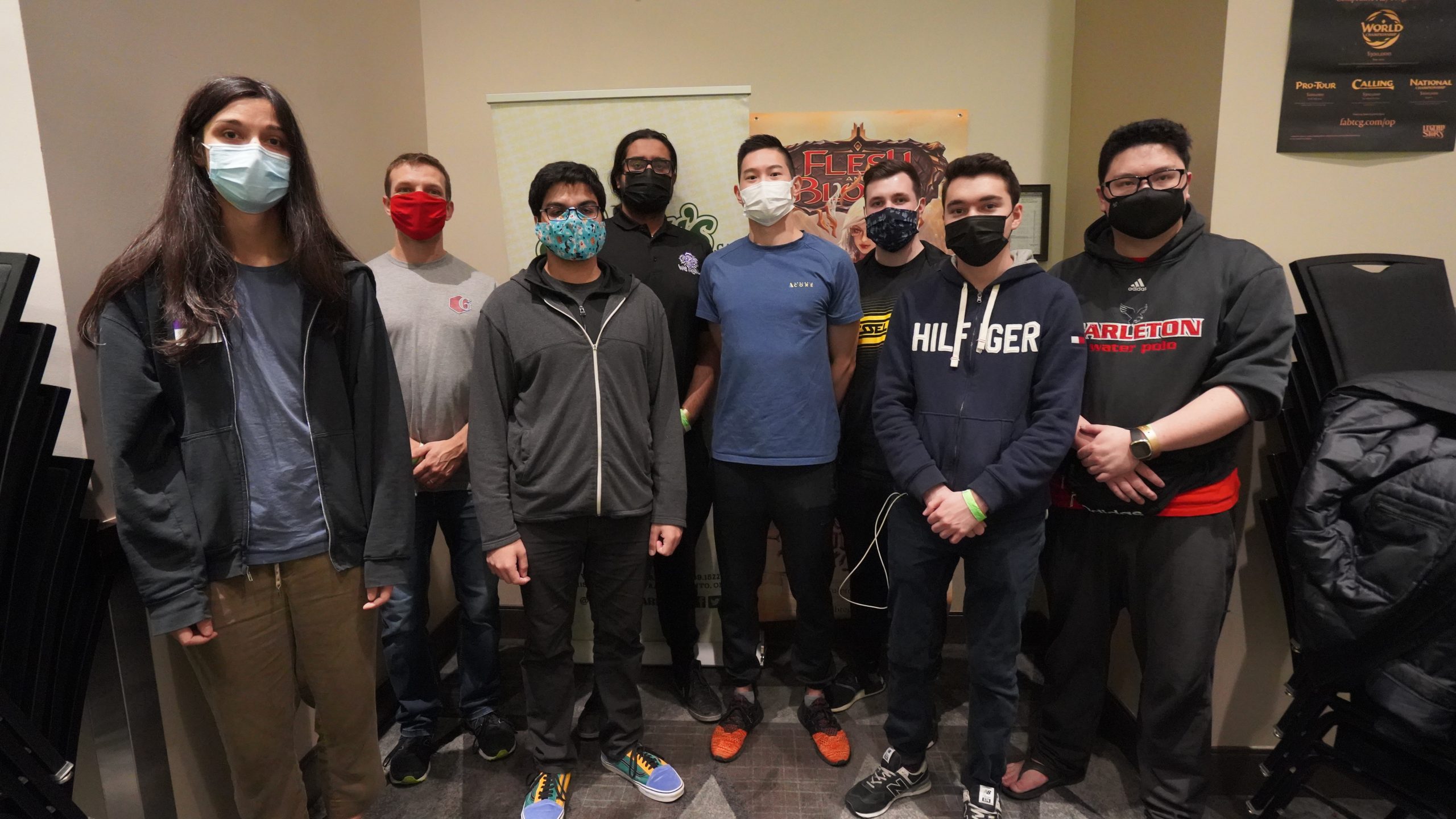
Now that she has a National Championship title under her belt, and the competitive scene of 2022 begins to open up, what does Yuki have in mind for the future? I asked her about her plans, and her thoughts on the evolving metagame. Where does she think it's headed next… and where does that leave Briar?
'I've been sort of wrapping my head around that lately. I don't know that I have it fully figured out yet; it definitely makes me want to pursue being competitive and all that, even more than I have been. It's an exciting time, and I don't know exactly where I’ll go, but I definitely want to try and continue competing and see how well I can do.
I think the metagame is in a really interesting place right now. I think that there's a lot of decks- like obviously Briar is very powerful, but I think that as counters to Briar come out and as people get used to playing against the deck and develop strategies against it, I think that there's a lot of room and there's a lot of things that haven't been discovered yet.
It doesn’t feel like Monarch, where Chane was pretty clearly the strongest thing to be doing towards the end, even though it didn't end up winning The Calling in Las Vegas. I feel like Briar though, the deck is strong and will remain strong, but I think there's tools to combat it and tools to keep it in check. I think it was interesting to see the meta shift away from Prism and Bravo, and I think we're starting to see another shift again from it being just Briar to it being a much wider field, so it's really interesting, and I'm actually very curious how it’ll continue to develop. Because, you know, National season is now winding down, and there might be less of a spotlight on the Classic Constructed format, but hopefully there's still some games and I'd be curious to see where it goes, because I think there's just so much to explore.'
Exploration and innovation in deckbuilding is something that came up repeatedly throughout the interview with Yuki; a topic she's passionate about on a personal level, but also something that she feels is intrinsic to Flesh and Blood. When it came to advice for newer players, and anyone wanting to pursue the competitive scene, Yuki spoke on the importance of individual playstyle, and crafting a deck that matches it.
'The biggest thing that I could say is that it really pays to do your testing, it really pays to try and be creative and be a good deck builder, and to have a plan for every match up. When you're going in, you really want to know what you're doing, and I think a lot of people fall into just… They want to netdeck, they just want to play the “best deck.” But I think especially for Flesh and Blood, there's so much room to craft your own strategy. I think how you intend to play the matchup will dictate some of your card choices. Like often there's a lot of cards that are very clearly just what you should be playing, but I think that every deck has a little bit of wiggle room and a little bit of customisation, and you need to find what matches your playstyle.
And I also think that you shouldn't be afraid to be innovative. It's not like- especially the card games that have digital platforms, for people who are just playing you know tens of thousands of games constantly, the meta gets “solved” within a week or two, but this- it's not like that, and we're seeing that play out at Nationals. The meta’s evolving and changing, and it's a lot of what appeals to me about the game, actually. You can build a deck, you can innovate without having to be someone who all you do is playtest.
I hope people just practice and try to be creative, try out new strategies, and just… trust your gut. Play what you know. If you have good plans in anything and into everything, you can win, even if it’s not the meta, or what people perceive to be the best deck.
You’ve just got to stick to your plan and do what you do what you know. You play the same way that you always do, and you’ve got to play solid, and that's what it is; it's not worth getting too caught up in your own head and worrying. You know, usually just doing what you know best is what gives you the best odds to win.'

'I just want to give a shoutout to my local scene, and thank everyone who puts things together – especially Eric Lerer and Infinity, they’re kind of the whole reason that we even have a local scene at all. I’ll be honest, without a local scene, I don’t know if I would’ve gotten into the game the way that I have, you know. Those community-building people are so important, and I’m really grateful to all the Canadian players, but especially the local VC scene that have made everything possible.'
